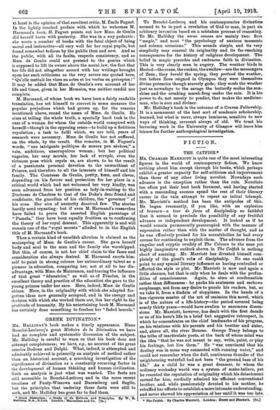GREEK DIVINATION.* MR. HALLIDAY'S book makes a timely appearance. Since
Boucbe-Leclercq's great Histoire de la Divination we have had no complete and systematic discussion of the subject. Mr. Halliday is careful to warn us that his book does not attempt completeness; we have, e.g., no account of the great oracles Dodona and Delphi. What, indeed, is attempted and admirably achieved is primarily an analysis of method rather than an historical account, a searching investigation of the significance of divination as a constantly recurring factor in the development of human thinking and human civilization. Such an analysis is just what was wanted. The facts are still accessible in Bouche-Leelercq and in the more recent treatises of Pauly-Wissowa and Daremberg and Saglio, but the principles 'that underlay these facts were still to seek, and Mr. Halliday has gone far to find them.
I3-reek Dicklatiote a Study of Us Methods and Principles. By W. B.
Halliday , B.Litt. London Macmillan To Bonche-Leclercq and his contemporaries divination seemed to be in part a revelation of God to man, in part in arbitrary invention based on a mistaken process of reasoning. To Mr. Halliday the verae causae are mainly two: first "magic," and next "the psychology of anxious moments. and solemn occasions." This sounds simple, and its very simplicity may conceal its originality and its far-reaching- consequences for the history of religious development. The' belief in magic precedes and embraces faith in divination. This is very clearly seen in augury. The -weather birds in Hesiod—the crane, the cuckoo, the swallow—are the messengers. of Zeus ; they herald the spring, they portend the weather, but before Zeus reigned in Olympus they were themselves. divine potencies though scarcely gods; they made the weather just as nowadays to the savage the butterfly makes the sun- shine and the croaking marsh-frog makes the rain. It is his power to do, not merely to predict, that makes the medicine- man, who is seer and diviner.
Mr. Halliday's book is the outcome of a Craven Fellowship. It is a monument of the best sort of academic scholarship, learned, but what is rarer, always luminous, sensitive to new ways of thinking, reverent always of old. We trust his lecturing work in the University of Glasgow will leave hisi leisure for further anthropological investigation.










































 Previous page
Previous page